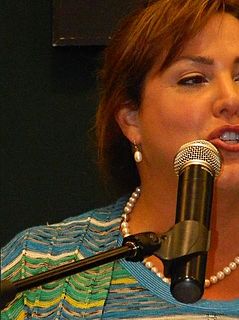A Quote by Jen Lancaster
I began writing fiction when I started running out of material in my own life.
Related Quotes
I started out being a stand up and writing my own material. That took me to Talk Soup, where I was writing and performing for TV. So everything is all the same job in my eyes, and I don't want to ever give up any part of it. I will say that stand-up is my first love; it's how I got started and is in my bones.
You can, in short, lead the life of the mind, which is, despite some appalling frustrations, the happiest life on earth. And one day, in the thick of this, approaching some partial vision, you will (I swear) find yourself on the receiving end of - of all things - an "idea for a story," and you will, God save you, start thinking about writing some fiction of your own. Then you will understand, in what I fancy might be a blinding flash, that all this passionate thinking is what fiction is about, that all those other fiction writers started as you did, and are laborers in the same vineyard.
About a year after (my stories began being published), magazine editor George Scithers, suggested to me that since I was so new at being published, I must be very close to what I had to learn to move from fooling around with writing to actually producing professional stories. There are a lot of aspiring writers out there who would like to know just that. Write that book.SFWW-I is that book. It's the book I was looking for when I first started writing fiction.
It's interesting how many science fiction writers get going when they are very young. I was on a program with Greg Bear and he mentioned that he had gotten started writing when he was eight. And I began writing when I was 10. I think we're influenced by the stuff, we find it and we love it and we're influenced by it....I know I collected my first rejection slip when I was 13, and I went on collecting them for a long time after that.
Memory is like fiction; or else it's fiction that's like memory. This really came home to me once I started writing fiction, that memory seemd a kind of fiction, or vice versa. Either way, no matter how hard you try to put everything neatly into shape, the context wanders this way and that, until finally the context isn't even there anymore... Warm with life, hopeless unstable.
I started writing when I was around 6. I say 'writing,' but it was really just making up stuff! I started writing and doing my own thing. I didn't really know what a demo was or anything like that, so I started getting interested in studio gear and started learning about one instrument at a time. My first instrument was an accordion.
It had also been my belief since I started writing fiction that science fiction is never really about the future. When science fiction is old, you can only read it as being pretty much about the moment in which it was written. But it seemed to me that the toolkit that science fiction had given me when I started working had become the toolkit of a kind of literary naturalism that could be applied to an inherently incredible present.

































